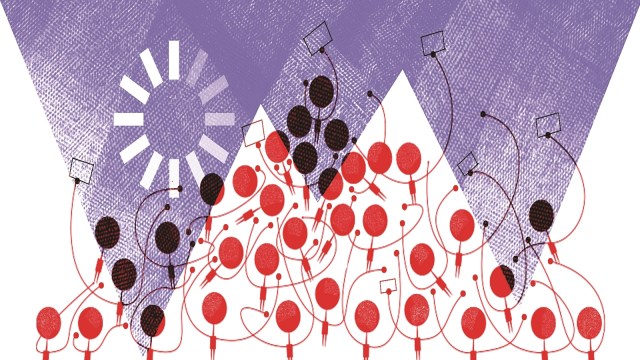
Leh and Kargil, Ladakh’s two districts, used to have two different political opinions. The people of Leh had been demanding Union Territory status with a legislature for Ladakh and they wanted separation from Jammu and Kashmir; in Kargil, the people were against the bifurcation of the state of Jammu and Kashmir.
On August 5, 2019, in a way, New Delhi brought them together. When the government announced UT status for Ladakh, the reactions in the two regions were different. In Leh, there was jubilation, while in Kargil, the people protested. Soon, however, Leh realised that despite its UT status, it was without a legislature. And as Ladakh began facing the bureaucratic coils of the new system, the initial euphoria was replaced by disappointment, and the idea of Ladakh’s inclusion under the Sixth Schedule took shape.
In Kargil, the people were protesting because they didn’t want Ladakh to be a UT and were demanding either reintegration with Jammu and Kashmir or for Ladakh to be made a separate state. In August 2021, after thorough deliberation, the Leh Apex Body and the Kargil Democratic Alliance decided to start a struggle for statehood, the Sixth Schedule, a public service commission and separate parliamentary seats for the Leh and Kargil regions. In January 2023, the government constituted the High Powered Committee (HPC) on Ladakh to discuss the issues. Several rounds of talks were held but no concrete outcome emerged. The people in Leh and Kargil are desperately waiting for representation as they feel betrayed.
The people of Ladakh have been deprived on three fronts. First, they have been deprived of a political voice and representation. Second, they lack safeguards for their land and identity, which existed earlier under Articles 370 and 35A. Third, due to the absence of a separate cadre for Ladakh, its bright young men and women are being deprived of job opportunities. This has also come in the way of Ladakh having its own set of bureaucrats.
The Ladakh movement has seen many ups and downs, with the support of climate activist Sonam Wangchuk, who later became part of the Leh Apex Body, attracting national attention. Through anshan and a padayatra from Leh to Delhi in 2024, Wangchuk has played a pivotal role in galvanising the Ladakh movement through nonviolent and innovative means. His hunger strikes, marches, and environmental activism transformed what many saw as a local issue into a larger struggle for democracy, constitutional safeguards, and ecological justice.
Through Gandhian methods of protest, he not only inspired thousands of Ladakhi youth to participate in peaceful demonstrations but also drew solidarity from across India. His ability to articulate the dangers of unchecked development, loss of land rights, and the fragile Himalayan ecosystem gave intellectual and moral depth to the movement, making him one of the most influential voices demanding statehood and Sixth Schedule protections for Ladakh.
The UT administration in Ladakh has not met the aspirations of the people because it has centralised power in the office of the Lieutenant Governor while sidelining democratic institutions like the Ladakh Autonomous Hill Development Councils. The absence of an assembly has left the people with no effective platform to frame laws or decide policies that directly affect their lives, creating a vacuum. Bureaucratic governance, with officials often unfamiliar with the region’s socio-cultural and geographical realities, has led to policies that are poorly formulated and implemented, and out of touch with local needs.
Youth unemployment continues to rise as the administration has failed to generate jobs or protect employment rights for locals. It was unable to recruit a single gazetted officer in the past six years. Decisions are taken without adequate consultation with local representatives, creating a sense of alienation and mistrust. Instead of empowering people, the UT system has concentrated authority in a handful of officials, leaving Ladakhis feeling ignored, marginalised, and betrayed.
Sonam Wangchuk’s arrest under the National Security Act has only granted greater thrust and popularity to the issues around Ladakh. On September 24, when violence broke out, some were killed, while others were injured or detained. A lurking threat of such chaos spreading further cannot be ignored if the government does not act on the legitimate demands of the people.
The killing of the four youths during the violence has only made Ladakh angrier and its demands more relevant. In these tough times, the Centre must act with wisdom and sensitivity. Considering Ladakh’s strategic importance, it should immediately create a conducive atmosphere for talks and fulfil the demands of the people of Ladakh without further delay.
The writer is a member of the Kargil Democratic Alliance and of the High Powered Committee constituted by the Ministry of Home Affairs to discuss Ladakh